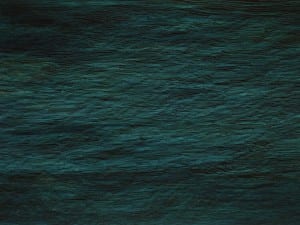Sylvia Adams is author of a novel, a poetry collection, an award-winning chapbook and a children’s book. She speaks to Aesthetica about her career as a writer and also her experience in taking part in the Aesthetica Creative Writing Competition last year. Her poem Water was the winning entry in the Poetry category, and was published along with the Short Fiction winner and finalists in the Creative Writing Annual 2013. The deadline for the 2013 competition is 31 August.
A: For the Aesthetica Creative Writing Competition 2012 you entered Water, what was the inspiration behind this poem?
SA: Usually, when I write I also revise, and often tuck a poem away to bring out later for more revisions. Water, however, remains pretty much the way it arrived, inspired by the reports I read about Hurricane Katrina and the gut-wrenching sense of loss that stayed with me.
A: As a writer, do you begin your work with a set idea and plan or does it evolve as you progress?
SA: How to begin a poem? There’s no one answer. I may have an urge to express thoughts or feelings on a subject, person or event. Sometimes I see a connection to another subject and want to explore the similarities or differences. I belong to a writers’ group in Canada called The Field Stone Poets that sets everybody challenges to work on for our next meeting. This forces me to stretch myself mentally and, however much I may resist at times, I’m always grateful for the opportunities presented in working with a group of like-minded people. Such ventures have introduced us to the work of many other poets, and without these jump-starts, I might just sit and wait, often in vain, for the Muse’s arrival. Mentoring a second group, the Pachyderm Poets, for nine years, also encouraged me to research, organize and prepare my writing ideas and I loved every aspect of the process.
A: Which writers have inspired you?
SA: When I was 11 years old my aunt, born and raised on the Isle of Wight, gave me a small hardcover birthday book, each date accompanied by a quote from Tennyson. That book was my first awareness of the joys and possibilities of poetry. Tennyson was my first love, poetically, and I grew up believing that poems should rhyme, exalt beauty and fulfil a deep yearning for perfection for all the senses. I remember in particular pondering the line “overlooks a space of flowers” in Tennyson’s The Lady of Shalott. The word “space” seemed at first to be a bland, non-specific term, but in its literary context I felt that it invited the reader to visualise a profusion of colours and patterns.
The list of poets that have inspired me grew to include Zagajewski, Transtromer, Szymborska, Charles Wright, Franz Wright, Jane Hirschfield, Jane Kenyon, Carol Ann Duffy and, on the Canadian scene, mentors who gave me their time in Ottawa and at Banff and Sage Hill: Moritz, Domanski, Levenson, Geddes, Borson, Dempster. As an adult, I nurtured my urge to work with metaphor, simile, assonance and alliteration, and treasured the freedom of expressing myself in everyday language, with and without the constraints of rhyme.
A: Who do you wish you had met from the literary world?
SA: I wish that, along with bereaved Lavinia Dickinson, I could have revelled in discovering the unrecognised poems by her sister Emily. I wish I could open my mailbox and discover a letter from Rilke. I wish I could have shared five-o’clock champagne with Dorothea Tanning in her New York penthouse before she died at 101 two years ago.
A: Do you think the Aesthetica Creative Writing Competition has aided your career?
SA: Any competition successfully entered, and run by a prestigious publication such as Aesthetica, certainly helps one’s writing career. Aside from the sense of personal satisfaction that such an endorsement brings, the assurance that one’s work is not in vain gives incentive to continue. I’m doing my best to extol the Aesthetica Creative Writing Competition 2013 on the home front in the hopes that this year’s entrants will include many of my fellow poets in Ottawa and elsewhere in Canada.
A: Which works by other people appealed to you from the Creative Writing Annual 2013, and why?
SA: When I read the poetry entries published in the Aesthetica Creative Writing Annual 2013, I felt awed by the stellar quality of the entire collection. There are poems that I can walk right into, be engulfed by, raise a glass with, sleep with under my pillow.
In particular, I’m intrigued by the magic spun by Karenna May Magee in Mountain by the Sky and Victor Tapner’s evocative humanising of artworks in Barbara Hepworth’s Garden of Sculptures. I love subtle humour, which is often so scarce in poetry and found myself re-reading Mark Stevik’s wry view of A Stadium Full of Bears. But where to stop… I enjoyed the mysterious energy of Michael McIrvin’s Crazy Woman Canyon; the tender, transformative Hours of Tonnie Wells; Oh, and I haven’t even started on the inspirational short fiction entries yet!
A: What are your future projects?
SA: I have recently put together a poetry chapbook manuscript, which is in a publisher’s hands so I have my fingers crossed. My second novel, a post-modern undertaking, is currently a jigsaw waiting to be assembled. I sometimes wonder: will it ever be finished?
The Field Stone Poets, the Canadian writers’ group that I am part of, also plans to put together a second poetry collection (the first, Whistle for Jellyfish, BookLand Press, Toronto, 2011, has been selling well), an undertaking that will require a lot of work for all of us. I’m also planning to edit and put together a humorous anthology of works by Canadian poets. All I need is energy, time and a willing publisher.
To enter the Aesthetica Art Prize visit www.aestheticamagazine.com/artprize
Credits
1. Confessions from the Still, Alec Von Bargen.





